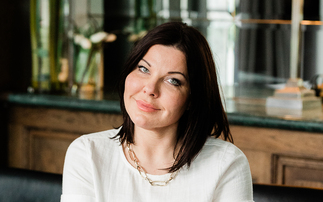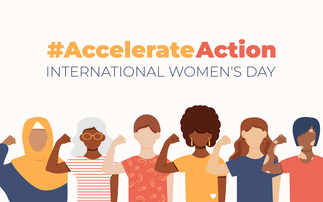With blue skies appearing in China, Adam Saville, editor of PA's sister title Cover, digs deep to find some positives amid the coronavirus pandemic...
A quick Google search will reveal that the word crisis comes from the Greek ‘to separate, to sift' meaning to pass judgement and to keep only what is worthwhile.
Of course, when faced with a period of drastic economic slowdown due to many people being unable to work for the foreseeable future with very little financial security or sick pay, it is not easy to look at the positives at this stage. However, at times of crisis, it is important to remember that the deeper the crisis, the better the opportunity can often be.
For the protection and health insurance industry, especially, it is time to step up and make a difference at the moment of truth, as the industry so often likes to remind itself.
This is new territory and a time when propositions are being tested like never before. We've already seen a spike in customer interest for income protection (IP), since the very beginning of the outbreak, but at the end of last week a slew of mutuals started applying exclusions for Covid-19 to new applications, a decision that was described as ‘understandable' by the Income Protection Task Force.
It's reassuring that existing policyholders will not be affected by these changes and we should see some financial relief brought to those with a short deferred IP period who test positive for coronavirus and are unable to work. However, the coronavirus crisis could trigger a reassessment of how this product interacts with unexpected periods of time off work, given these incredibly unusual circumstances.
Then there are the families who lose their loved ones earlier than expected during the outbreak, covered by life and critical illness cover (CI), who will receive financial support at what will be a hugely testing economic period for many people. As it stands, there are no exclusions for both new life and CI polices and any claims that arise will be paid as you'd expect.
Let's also not forget the additional services available through protection policies which can provide health services over and above the struggling NHS.
Last week, Boris Johnson announced that all non-urgent operations in England will be postponed from 15 April to free up 30,000 beds to help tackle coronavirus, and we are already seeing signs the private health sector can play its part to lighten the load on the NHS.
But insurance aside, there a number of rays of sunshine appearing through the clouds (quite literally) - or at least some things we can cling to as a society - as we take steps to adapt in the face of unprecedented adversity.
- The environment
Here at Incisive Media (owner of Professional Adviser and Cover) we have made no secret of our views on climate change and the need for sustainability. Reports from China suggest that blue skies have returned to Shanghai due to a reduction of carbon due to the coronavirus crisis. Photos on Twitter show Venice canals running clear in the absence of tourists, and the European Space Agency is showing a huge improvement in CO2 emissions following mass travel bans. Is this the wake-up call the global community needs to hammer home the devastating impact we are having on Planet Earth?
- Community
It might seem ironic that a period of self-isolation and lockdown has the capacity to bring people together, but the video below shows the enduring nature of the human spirit as Sicilians played music and partied like its 1999 on their balconies. Footage of people panic buying toilet roll, while the most vulnerable suffer most, might not fill us with much faith in our not-so-humble race, but now is the moment when a tiny gesture of kindness can make all the difference - even if it's just a note in your elderly neighbour's door offering to pop to the shops or a genuine ‘how are you doing?' in an email.
There is usually someone worse off than we are, so these war-like conditions present us with an opportunity to do something for those who may be less fortunate. Even big corporations like Sainsburys and Iceland are opening shops an hour earlier to give priority to those in need.
This is why so many people through many centuries fall in love with Italy
— (self isolating) romepix (@romepix) March 14, 2020
A video montage of Italians all over Italia from north to south to central to the islands — all signing together during the Italy Lockdown is a kind of triumph of spirit, a love in the time of coronavirus pic.twitter.com/XqoLsGMoIV
- Back to basics
Millennials and gen Zs are often chastised as generations spoiled by ‘choice paralysis', glued to their iPhones and obsessed with Love Island, but a radical culture shock like this might just be the jolt a lot of us need to appreciate those things we often take for granted. A new approach to living might just provide us a fertile environment to let go of those unnecessary trivialities that so often define us, and really get know ourselves. At some point Netflix will get boring, so, who knows, maybe we'll read a book, go for a walk in nature or play a board game (and actually really enjoy it).
- Working 2.0
Boris Johnson's announcement on Monday that those who can work from home should do so brought a step-change that will revolutionise the way we work as a society. Flexible working has already become the norm in many companies, and with it comes many benefits, but none of us could see this situation appearing on the horizon.
This is unchartered territory, indeed, with IT systems being tested to the max and our wellbeing put through the mill in extreme circumstances, but one thing is clear: we are entering a new phase of flexible working and employers need to adapt fast and learn from the challenges it brings to our workforce.
- Focus on financial resilience
The Chancellor's introduction last week of £330bn worth of government-backed loans to help those hit by the financial crisis, including a three-month mortgage holiday and cash grants for leisure and retail businesses, brought home the far-reaching impact of coronavirus.
Looking forward to a world beyond coronavirus, financial resilience is no doubt going to become a priority for families worldwide, as we start the healing process of the trauma of the world's worst public health crisis for a generation. This is where financial advisers will become increasingly important.














